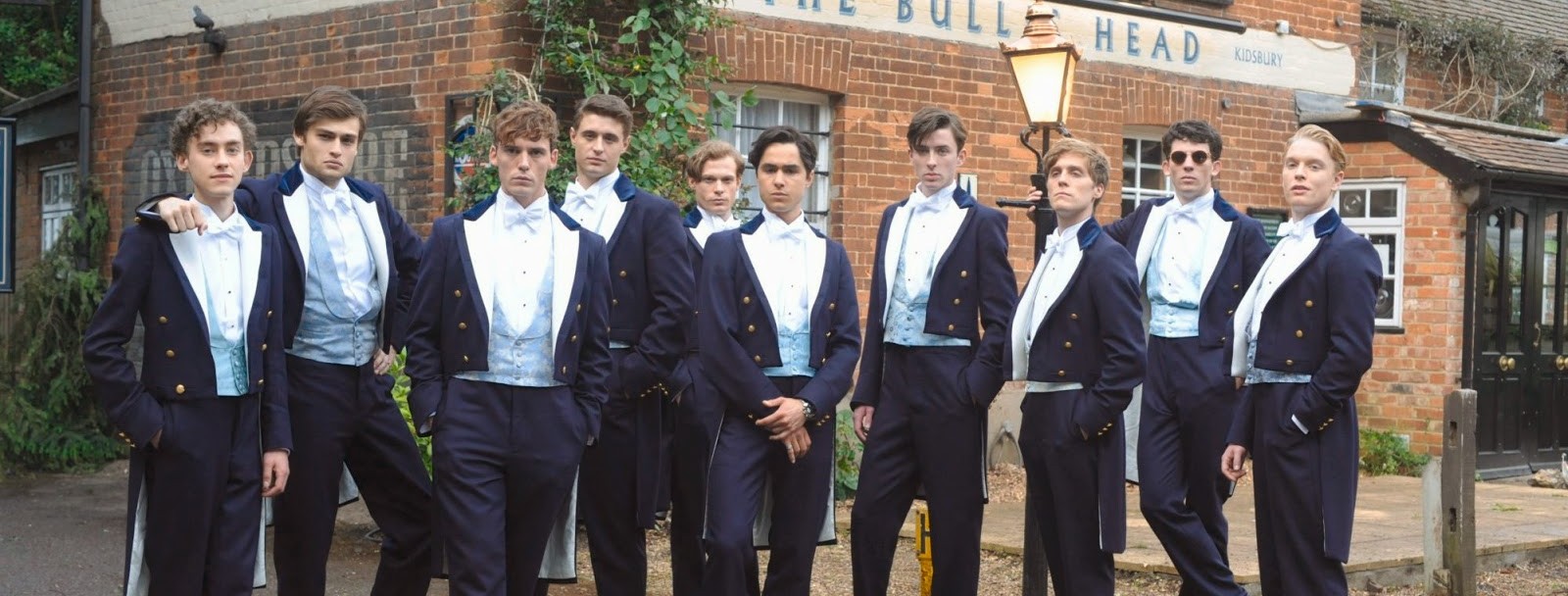A vile film brimming with vile characters, but a good one nevertheless. Laura Wade adapts her own 2010 play ‘Posh’ for the big screen and together with director Lone Sherfig (‘An Education’ 09, ‘One Day’ 11) weaves a tale of toffy nosed excess amongst an elitist society of prigs at Oxford university, the titular Riot Club, almost certainly based on the real life Bullingdon Club (which the current British Prime Minister, David Cameron, and the Chancellor of the Exchequer, George Osborne, were both members of). We enter the main story at the same time as the two central characters do, with Miles (Max Irons) and Alistair (Sam Claflin) beginning their time at uni and quickly coming to the attention of the established RC who only recruit the very crème de la crème of the males on campus, effectively sourcing the best looking and most affluent available. Alistair is arrogant, snooty, calculating, evil and essentially everything you imagine an upper class snob would aspire to be like, contrasting with Miles who is naïve and excited at being singled out for membership but is essentially good at heart, something which also garners him the amorous attentions of the delectable Lauren (Holliday Granger).
We see a little of their very laddish exploits, which largely seem repugnant more than anything else (pretty sure if I joined a group and they broke into my room, ransacked it and then spunked over my notes, that group’s membership would swiftly be reduced by at least one), and the potentially corruptive interplay of group dynamics predominantly rears its ugly head, but the staging of the film is mainly a direct extrapolation of its theatrical origin and politics frequently takes centre stage. Indeed, it is no surprise whatsoever that this was released the weekend after the Scottish independence referendum as the heart of the movie takes place in a restaurant where the group debauch themselves and consistently rub up against the Scottish proprietor (Gordon Brown), resulting in increasingly difficult scenes to watch.
Equally, the nationality of the landlord, who employs his daughter (Jessica Brown Findlay) and is shown to be fairly jovial and proud of his business, is quite deliberate as not only do the Riot Club espouse absolutely everything that we the Scots hate about the English, but they also represent everything the English hate about the English, and indeed everything the rest of the entire world hates about the English for that matter (indeed, whenever anyone from Scotland refers to the English in a negative context we mean these twats, not people from England generally. It’s important to make this distinction), stemming from this much ingrained marker of arrogance as a sort of national symbol – one that has long been the backbone of the money laden elite traditionally filling the halls of power in every walk of the British establishment, and still very much holding Westminster in thrall today.
The film has a modern day setting, which hammers home the point that it is still a current issue despite being somewhat associated with an aloof aristocracy of centuries past, and the film is well acted to the point that it may be difficult to shake off some of the character associations with the performers. A drama of blood privilege that highlights the lunacy of the gulf between the people that run Britain and the majority of the people that live in the country.

